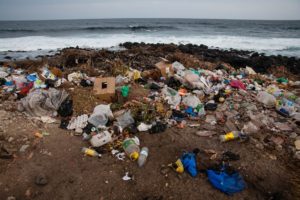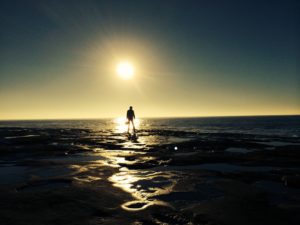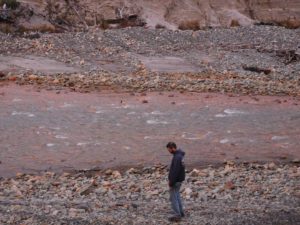
- Although people will more readily acknowledge the looming extinction of dolphins, whales, large carnivores, and so many other species, Continue reading
Category Archives: our world in trouble
Paying People to Get Sterilized: A Hypothetical Proposal
 I have a hypothetical idea to help combat the problem of overpopulation: paying people to get sterilized. We already sterilize overpopulated dogs and cats—and consider this to be humane and for the greater good. However, with cats and dogs we do not consider the issue of consent, which we must consider with people. That is why I propose offering people money to get sterilized—because it gives them choice in the matter. The decision then becomes voluntary.
I have a hypothetical idea to help combat the problem of overpopulation: paying people to get sterilized. We already sterilize overpopulated dogs and cats—and consider this to be humane and for the greater good. However, with cats and dogs we do not consider the issue of consent, which we must consider with people. That is why I propose offering people money to get sterilized—because it gives them choice in the matter. The decision then becomes voluntary.
Meanwhile, our Western society presently does the opposite of my proposal: we offer people financial incentives to have children. Continue reading
What would it be like to be the last human being on earth?

Unless a sudden cataclysm wipes out all of remaining humanity at once, there will someday actually be one final person alive. In my imagination, this human “endling”—the final, lone representative of our species before it goes extinct—would be conscious of himself and his situation. He would still have enough passion and desire to contemplate his existence and discern the meaning of it all. I imagine him as reflective, a person who wanted to make sense of his strange, final reality—the last in a line of a hundred or two hundred billion people.
Here are some of the thoughts and feelings I imagine he would have:
“I am so lonely. What a misfortune to be a member of a social species, yet have no one with whom to socialize.” Continue reading
People Live in Bubbles
 While recently reading a book about living a more healthy, green, organically-oriented lifestyle, I found myself struck by the idea that I was reading an instruction guide on how to live more snugly in a bubble separated from nature: separated from the natural world and all the toxins and garbage that we’ve dumped into it. Ironically, this book also extolled the virtues of spending time in nature, though its supposedly nature-loving author failed to acknowledge how he (and most of us) lived under completely different rules from the wildlife of nature. The animals of nature, after all, live outside the bubble. Continue reading
While recently reading a book about living a more healthy, green, organically-oriented lifestyle, I found myself struck by the idea that I was reading an instruction guide on how to live more snugly in a bubble separated from nature: separated from the natural world and all the toxins and garbage that we’ve dumped into it. Ironically, this book also extolled the virtues of spending time in nature, though its supposedly nature-loving author failed to acknowledge how he (and most of us) lived under completely different rules from the wildlife of nature. The animals of nature, after all, live outside the bubble. Continue reading
The World’s Going to Shit — A New Song I Wrote on the Ongoing Environmental Catastrophe
An Open Letter to Humans of the Year 2100
Dear humans of the year 2100,
By the time you read this I will be long dead, probably forty or fifty years already. The things about which I write are obvious to you. To you it is obvious that we, your progenitors, failed. We failed to make the changes necessary to allow our species to live sustainably on this planet. We failed to use the technology at our disposal to live cleanly on Earth. We failed to use farming and waste disposal methods that did not poison the land and water and air. In our quest for lives of comfort we used our planet, and psychologically our children, as a sewer. Continue reading
A Pond I Loved: A Microcosm of Our Species’ Destruction of Nature
When I was a child, there was a pond I loved. It lay a fifteen minute hike from the apartment complex where my family lived, over a hill and through some woods. It was in the middle of a meadow, fed by a natural stream. In it were tadpoles, a few species of frogs, crayfish, eastern painted turtles and snapping turtles, sunfish and catfish, perch and minnows, dragonfly larvae and salamanders, clams and snails, watercress, algae of several different varieties, and waterlilies. Butterflies of multiple species flitted around its shores, drinking water from the mud and nectar from the flowers nearby. Continue reading
Exploring Some Potential Limits of Voluntaryism
I have recently been enjoying good conversation with some friends who describe themselves as “anarchists” and “voluntaryists.” Although I am new to exploring the meaning of these labels, my friends have explained them to me by returning to certain philosophical cornerstones: the non-aggression principle, respect for boundaries, and the avoidance of the use of force. From what I have gathered, a summation of their point of view, be it political or economic or simply interpersonal, is that all human interchange and interaction should be voluntary: that is, that no one should be forced to do anything by anyone or should practice force on others. Perhaps one could restate it by saying that no one should be aggressive toward others or cross others’ boundaries. This, they explain—assuming I have understood it correctly—is the basis of morality. Continue reading
TRUTHTELLER: mini-film on overpopulation and childhood trauma
I’ve been thinking for a while about branching out with my filmmaking and making films not just on recovery from psychosis or changing the mental health system. So, I finally did it! I made my first new film, a short film, called TRUTHTELLER. The subject is my friend and colleague Fred Timm, a visionary in New York City who has very clear ideas on what’s going wrong with our species, what the consequences of this will be, and what we need to do to fix it. Continue reading
Fifteen Lies Debunked in Sixty-Five Words or Less
[Originally posted 12/26/09.]
Lie #1: Romantic Relationships Help People Grow.
Ninety-nine percent of the time, romantic relationships help people become comfortable, and over the long haul comfort is contrary to growth. Most people get into relationships in an attempt to create the safe, womblike childhood they never had. In so doing, they never learn how to love themselves fully—from within. That is the real relationship.
Lie #2: We All Have Sexual Needs.
Sexuality is a misplaced lens through which we express of our desperate, anachronistic desire to have been loved fully as children. Continue reading
Climate Change: The Gods Aren’t Punishing Us – We’re Doing it to Ourselves
[Written in 2008.]
“Primitive” people throughout history have had a tendency to blame themselves when things go wrong in their world. They struggled to appease angry gods for times of drought and disease and accident and famine, thinking their own moral imperfections and behavioral errors to be the cause. Yet all too often they, with their “self-centered” worldview, were blaming themselves for things which had nothing do with them. The irony is, our modern world, with its global warming, melting polar ice caps, radical loss of species, and massive pollution, is falling apart directly BECAUSE of humanity’s sick actions – and yet now we deny it! Continue reading
Overpopulation: It Is Time for the Old Species to Die Out
[Written around 2005.]
Signs of human overpopulation are everywhere, yet few talk about it. There are over six billions humans and their numbers are only expanding. Humans are destroying the balance of the planet at an alarming rate. Other species are going extinct faster than ever before – because of the insanity of Homo sapiens. Forests are being decimated, oceans polluted, ice caps melted, and the air and soil is growing toxic. None of this is a mystery, yet few do the math. Continue reading
Evolution Ain’t What It Used Be
[Written around 2006.]
In biologically evolutionary terms the fittest organisms are those that bear the most offspring surviving to reproductive age. Many humans still believe this to be a worthy life goal, even an obligation, and feel they are letting down their species, their culture, their families, and their race if they don’t have children. But how sickening this tribal attitude is! What about the good of our world? Continue reading
On Being A New Species
[Written around 2005.]
The enlightened person is a new species. Although he can physically interbreed with others of Homo sapiens, he does not. He lives in a different world. His mental make-up is different from theirs. This is painful for him. He may be attracted to some members of Homo sapiens, but on a soulful level he is not compatible. Continue reading
If the Healthiest People Remain Celibate then What Happens to the Future of Our Species?
[Written around 2005.]
It is ironic that many people, when I speak of celibacy as an ideal, argue that following my lead would drive our species to extinction. In our overpopulated world of nearly seven billion people – who are driving us to the edge! – can we really fear celibacy and the path to enlightenment so much? Continue reading
Eighteen Ways To Speed Up The Path To Enlightenment
[Written in 2006.]
People argue that conscious celibacy in the service of the path toward enlightenment would lead our species to extinction, but in their denial they completely miss the point – and get it backwards. It is our unconsciousness which is leading us to extinction, and as the coming decades pass this will become only more obvious. Continue reading
The Essential Difference Between Animals and Humans
The thing that most clearly differentiates humans from animals is the capacity to self-reflect. Although chimpanzees, our closest genetic relative, can be taught to do almost everything humans can, albeit at a more primitive level, they cannot self-reflect. They cannot take that mental leap of stepping outside of themselves and studying themselves from an alternate perspective, even having a relationship with themselves—of dialoguing with their internal self that they are alive, that their heart is beating, that their life has purpose and meaning, that they will die someday, and, ultimately, that they can make creative, conscious changes in their internal and external environment based on what they learn on their life’s journey. This is the realm of humanity—and perhaps of dolphins and whales too, though if this is the case then I would agree with John Lilly, the famous dolphin researcher, who called dolphins “the humans of the sea.” Continue reading
Eleven (Now Twelve) Situations In Which It Is Not Appropriate For You To Have Children
[Written in 2004. This essay, perhaps the most controversial on this site, appeared on the original version of iraresoul.com in 2004. I’ve gotten more emails, some of them quite angry or even hateful and threatening, regarding this essay than any other thing I’ve written. Many times I’ve considered changing this essay or taking it down, mostly because it was almost too stressful for me to stand behind, but then I’d reread it, and decide…that I still agreed with it. And so it’s stayed. Meanwhile, I’ve added a 12th situation…at the end.]
1) You are not fully enlightened.
If you are not fully enlightened it means you still repress some degree of unresolved trauma. We all have a compulsion to act out our repressed traumas on our intimates, and all the more so on our vulnerable, needy children – because they cannot refuse it or escape. Therefore, where you are not enlightened you will abuse your children to at least some degree. This is inappropriate. Continue reading
We Are Destroying Our Planet, and We Are Responsible
We humans are destroying our planet—and we are responsible. We spread pollution through our industry, our overpopulation, our fertilizers, our trash, and our insecticides. We wreak ecological havoc through our unsustainable farming, logging, mining, fishing, and exploitation of the world’s other natural resources. We are making our home unlivable not only for ourselves but for the millions of other animal and plant species with whom we share it.
The Briefest Nutshell of My Entire Point of View
[I wrote this essay in July of 2011.]
I create my writing, videos, and music in the context of my broader point of view. Many of my individual works, however, reflect but one facet of that viewpoint, and when studied out of context risk giving a misleading impression of where I stand. For that reason I write this essay: this is the nutshell of my whole point of view. Continue reading
